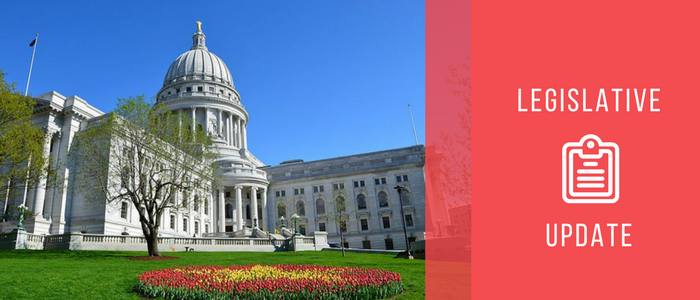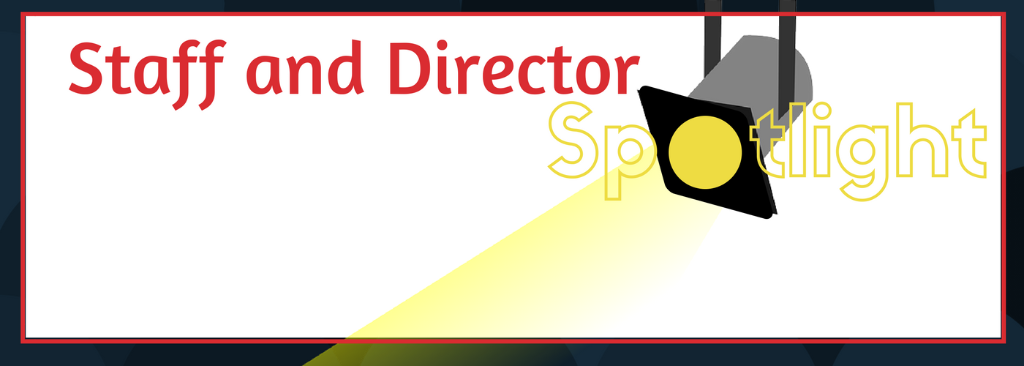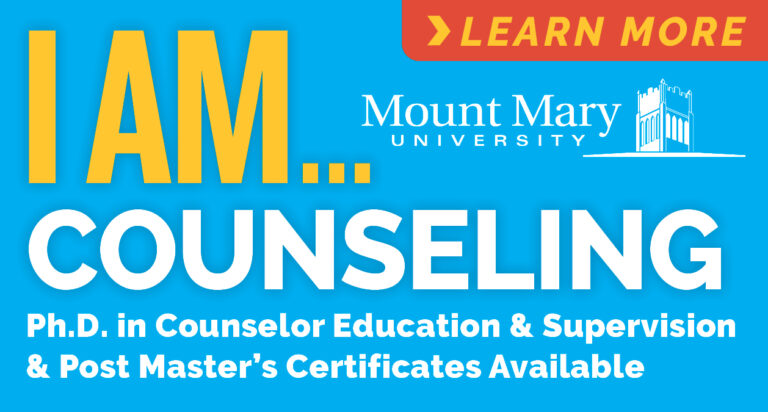March 2018

In This Issue:
Executive Director Message
Membership Promo
Assistant Board Director Message
This Month’s Feature
Leadership Academy
Legislative Update
Staff and Director Spotlight
Committee Updates
A Message From Your Executive Director…
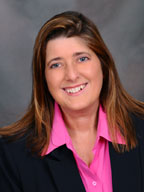
By Stacy Eslick
Over 1100 School Counselors were “agents of change” this year at the annual WSCA conference in Madison. It is an honor to represent such a passionate, dedicated and knowledgeable group of professionals. There were many themes and calls to action in the area of leadership.
Several years ago, a collaborative effort between the American School Counselor Association (ASCA), National Association of Secondary School Principals (NASSP) and College Board’s National Office for School Counselor Advocacy (NOSCA) came together to research school counselor – principal relations. The outcome was a report and toolkit designed for counselors and administrators. In the toolkit, there is a section dedicated to school counselor leadership. As shown below, there are interesting findings from the research on perceptions of school counselor leadership. School counselors and principals were asked to rate “the importance and presence of counselor participation on school leadership teams.”
| Survey Results* | Importance (1–5) | Present in my school (1–5 ) | Gap between presence and importance |
| Principals | 4.29 | 4.01 | .28 |
| Counselors | 4.38 | 3.56 | .82 |
Researchers noted: “Principals and school counselors both think that it is important that counselors participate in school leadership. They have very different perceptions about how well that is happening in their own schools.”
* Survey results are based on a sampling of more than 2,300 counselors and principals throughout the U.S. Participants were asked to rate a number of characteristics on a scale of 1–5, with 1 meaning not important and 5 extremely important. Next, the participants were asked to rate whether these characteristics were present in their current school, with 1 meaning not present and 5 extremely present. The next column shows the gap between what the survey participants felt was important and its presence in their school.
Leadership development is reflective and unique to every individual. As you ponder your own leadership qualities and characteristics I would encourage you to use the leadership resources available in the Enhancing the principal-school counselor relationship toolkit.
If you are looking for leadership opportunities outside your school community, please consider getting involved in WSCA. We have a wide range of committees and projects that you can join based on your interests, skills and time commitment. Learn more at /about-wsca/get-involved/
Thank you again for joining us at conference! It is energizing and exciting to surround ourselves with others as dedicated to the profession as we are. Wisconsin school counselors are truly agents of change for our students.
Warm regards,
Stacy
Reference:
College Board. (2011). Enhancing the principal-school counselor relationship toolkit. Retrieved from https://secure-media.collegeboard.org/digitalServices/pdf/nosca/11b_4729_PC_Toolkit_WEB_111104.pdf Google Scholar
Membership Promo
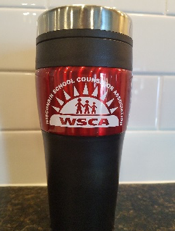
Not a WSCA member? Through the month of March 2018, you are eligible for a WSCA tumbler and will be entered into a drawing to win a FREE registration for WSCA Conference 2019!
A Message from Your Assistant Board Director, Angela Goebel
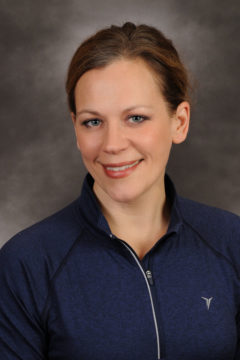
Welcome to March! The month of March offers a lot of opportunities. To start, several of the opportunities I am going to mention are spring-related. First, and foremost, if you have not already done so, please spring into action by voting for our slate of candidates for the WSCA Board. Other spring opportunities include springing forward for Daylight Savings time on the 11th. Some of us may have the opportunity for a spring break. And maybe, just maybe, many of us are looking forward to Spring Equinox. While I love Fall Equinox, I greatly value and appreciate the renewal Spring has to offer.
As I prepare for a spring renewal, I am considering all the gems I gained from WSCA conference. From the keynote speakers and conference presenters to the exhibitors, I have many new tools and renewal of some old ones I look forward to implementing. One big gem I took from the conference was the highlight on Empathy. I look forward to focusing on Empathy as a fundamental skill to teach and model for our students and children. I am going to find ways to use Empathy to help our students to become resilient and create a world of kindness, peacefulness, acceptance, and appreciation.
In considering ways to do this, I looked to ASCA’s awareness calendar at schoolcounselor.org. There are so many more opportunities to move forward with Empathy, specifically in this month of March. The opportunities in the awareness calendar for the month of March is providing us are through Gender Equality, Middle-Level Education, Music in Our Schools, National Nutrition, Women’s History, and Youth Art. There is also specific days such as Self-injury Awareness, National Youth Violence Prevention, Kick Butts, World Water, and International Day for the Elimination of Racial Discrimination. Empathy opportunities Galore!
Whether it is related to one of these awareness topics or not, I encourage and challenge you, in this month of March, to find a way to practice and model empathy in your schools and life. More than ever, “Be somebody who makes EVERYBODY feel like somebody.” -Anonymous

Motivation & Success:
School Counselors Support Student Achievement
By Adriana Plach, Board Director
School counselors are a resource, and sometimes a life-line, when students are struggling in the classroom. We are in a unique position to look beyond the veil of what happens in class and see the whole child – their strengths, their interests, their challenges, and their barriers to success. When we are called in to support a child, we often hear comments speculating on what is lacking or what needs development: resiliency, a growth mindset, perseverance, or intrinsic motivation. Without these, the road to finding achievement – both during school years and beyond – will be uphill.
While it may be easy to identify when these competencies aren’t present, these are nebulous concepts that can be challenging (and intimidating) to measure. Nevertheless, it is critical that school counselors take a close look at motivation and how we can support building it within our students. In fact, these are so vital to the future success of our students, they are infused within all of the strands of the ASCA Mindsets & Behaviors: the Mindsets, Learning Strategies, Self-Management Skills, and Social Skills.
Data also shares a compelling story. “Hattie’s 2017 Updated List of Factors Influencing Student Achievement” (Killian, 2017) analyzed multiple factors that impact (both positively and negatively) student learning. A lack of motivation, identified as “boredom”, had a significantly negative effect size (-.49) on student achievement. Conversely, exhibiting motivation had a significantly positive effect size (+.42) on student achievement.
Data that captures these competencies is also critical to our own continuous improvement as school counselors. Developing ways to define, measure, and evaluate our influence on improving student achievement through building motivation can be used to improve our practice, develop student learning outcomes, plan professional development, and be used as artifacts of our influence within the school community.
When we explore ways for school counselors to support student success through nurturing and growing motivation, we can take both proactive and responsive measures. As always, using data to assess baseline information is key. This data can be gathered in multiple ways. Self-report surveys can be used to collect perception data. Surveys such as Gallup’s Student Poll can be used to assess trend data throughout a school community. Additionally, academic performance can be analyzed to use as a tool to assess outcome data.
As counselors, we can provide both direct student services for students that facilitate the development of motivation, as well as consult with teachers on methods they can employ that will better support a growth mindset within the classroom. Below are a few suggestions on ways to build motivation within your student community.
- Personalized Learning: Consultation with teachers on ways to provide student voice and choice within the classroom increases student engagement in the learning process and gives them an opportunity to make the learning process or product a reflection of who they are as an individual.
- Mini-Lessons: Whether delivered by the counselors directly or provided to teachers, mini-lessons and bellwork activities that focus on developing motivation are great opportunities to set the stage for successful learning in the classroom.
- Academic & Career Planning (ACP): Create systems that ensure student exposure and engagement to a variety of activities and experiences that focus on self-awareness, career exploration, goal-setting, and future planning. This provides an authenticity to the learning that takes place within and beyond school.
- Career-Based Learning Experiences: Like ACP, CBL opportunities can cultivate relevancy to what is happening in class, as well as provide practice of critical employability skills.
- Cultivate a safe and empowering community through school initiatives: When students feel safe and part of a supportive community, they can focus on doing well.
- Teach realistic goal-setting: When students are able to identify and set realistic goals for themselves, they have both direction and action plans. In addition, tracking progress is key!
- RtI/School Counseling Curriculum: Exploring the school counseling curriculum and the embedded Tier One supports are ways that motivation can be addressed through a whole-school or grade-level lens. In addition, students who receive academic or behavioral interventions at Tiers 2 & 3 may benefit from targeted approaches that support their individual needs.
- Individual Student Support: A lack of motivation may be a signal that there are other barriers or challenges that a student is facing. Individual counseling can be critical to bringing these to light, and it can help direct future services that the student may need. In addition, helping students find their own personal reasons for learning and being in the school setting can have a powerful impact on motivation.
- Provide opportunities for success: Finding success can reinforce a desire to do well on future endeavors!
Despite what it may seem or feel (particularly in February/March in Wisconsin), school counselors are well equipped with both the skills and the passion to cultivate and nurture motivation in even the most challenging of students. We wish you warmth and energy during these long weeks, and don’t forget to take time for self-care (which is vital to maintaining and growing your OWN motivation)!
———————————————————————————————————————
American School Counselor Association (2014). Mindsets and Behaviors for Student Success: K-12 College- and Career-Readiness Standards for Every Student. Alexandria, VA: Author
Killian, Shaun (2017). Hattie’s 2017 Updated List of Factors Influencing Student Achievement. The Australian Society for Evidence-Based Teaching.
WSCA Leadership Development Program
The Wisconsin School Counselor Association is proud to offer the brand new WSCA Leadership Development Program. This year-long program will explore leadership from the school counselor position and provide participants the opportunity to deepen their understanding of individual leadership strengths and leadership philosophy. Program participants will be better equipped to lead their profession at the building, community, and state levels.
Applicants selected to the WSCA Leadership Academy Class may:
- Attend a series of leadership workshops and training sessions.
- Learn more about WSCA’s history, governance process, and strategic initiatives.
- Meet with current and past WSCA leaders in a small group environment, thereby increasing the opportunity for high quality, one-to-one interactions.
- Learn more about leadership opportunities within WSCA, including leadership positions associated with the Board of Directors, Coordinators, WSCA committees, councils, and task forces.
- Develop lifelong relationships with other WSCA members interested in leadership opportunities.
- Prepare for future leadership positions on the WSCA Leadership team.
Here’s the best part: it’s FREE! This program is not only designed to be free of cost for participants, but also has built-in monetary benefits including free Summer Academy attendance, ASCA School Counseling Leadership Specialist Training & Certificate, reduced Annual Conference fee, and free materials.
If you are interested in learning more, please contact Stacy Eslick (stacye@wscaweb.org) or Olin Morrison (olin+board@wscaweb.org) for more information. If you are interested in applying to the 2018 WSCA Leadership Development Program, please review the program dates below before completing the application.
Application Timeline
Open February 1st
Leadership Academy Application can be found here: https://www.surveymonkey.com/r/WSCA_Leadership_Academy_2018
Applications Close March 9th
Notice of acceptance into program Wednesday, March 14th
Program Dates:
| March-April 2018 | Book Study | Required |
| April 21, 2018 | 12:00 pm -1:00 pm
WSCA Board of Directors Lunch |
Optional |
| 1:00 pm – 4:00 pm
Leadership Academy Training Part 1 |
Required | |
| May – July 2018 | Online ASCA School Counseling Leadership Specialist Training | Required |
| July 31, 2018 | 9:00 am – 12:00 pm
WSCA Summer Academy |
Optional |
| 12:00 pm – 4:00 pm
Leadership Academy Training Part 2 |
Required | |
| 5:00 pm – 7:00 pm
WSCA Leadership Reception and Social |
Optional | |
| August-September 2018 | Online ASCA School Counseling Leadership Specialist Training | Required |
| September-November 2018 | WSCA Leadership Meetings
Attend one Board and one Coordinator meeting. Dates TBD, Saturday 10:00 am – 3:00 pm |
Required |
| January 2019 | WSCA Conference Planning Meeting | Required |
| Board or Coordinator Meeting | Optional | |
| February 2019 | WSCA Conference | Required |
Legislative Update
Counselors,
The Wisconsin Public Education Network has been watching the Blue Ribbon Commission on School Funding and created a webpage with current updates. Consider attending a public hearing that the commission will be hosting to share your input on school funding.
BLUE RIBBON COMMISSION ON SCHOOL FUNDING PUBLIC HEARINGS
Monday, March 5, La Crosse. 1:30-6 pm at North Woods International School, N2541 Sablewood Rd.
Mon. March 26, De Pere. 2-6 pm at Foth, 2121 Innovation Court De Pere, WI 54115.
Here is the Wisconsin Public Education Network Blue Ribbon HQ page for more information, testimony tips, links to resources, and details on submitting written testimony.
WASB (Wisconsin Association of School Boards) has compiled a list of bills that have passed both the assembly and senate and are being sent to the Governor’s office to be signed. Please read below for the most current updates from WASB.
K-12 education bills currently awaiting the governor’s signature – February 27, 2018
Although the state Senate will still meet at least one more time this session and we expect it to pass additional bills, here is a list of the bills affecting public K-12 education that have passed both houses and are ready to be delivered to Governor Walker’s desk:
Assembly Bills
Assembly Bill 332 School Board Candidate Signatures
Assembly Bill 780 Hearing Notices to Schools (Requires that a school be given notice of: a) a permanency plan review for a child who has been adjudicated in need of protection or services (CHIPS) has been removed from the home and placed in out-of-home care, or b) a hearing for an enrolled juvenile who has been adjudicated in need of protection or services (JIPS) or delinquent and that in either case the school be given an opportunity to submit written comments. Any notice given to a school or school district regarding a permanency plan or regarding placement of a child or juvenile in out-of-home care must include the name and contact information for the caseworker or social worker assigned to the case.)
Assembly Bill 805 Excludes certain college credit in high school (dual enrollment) programs from the Early College Credit Program (ECCP). (Under the bill as amended, a course for which a public high school student may earn postsecondary credit is excluded from the ECCP if all of the following apply:
” The school board of the school district and one of the following have entered into an agreement before, on, or after the effective date of the bill, to provide a college credit in a high school program to academically qualified pupils under which participating pupils may take the course for postsecondary credit:
o The chancellor of a UW System institution.
o The president of a private, nonprofit institution.
The instruction of pupils in the course takes place in a school building in the school district or a school district facility.
The high school teacher who provides instruction in the course is employed by the school district and has been certified or approved to provide the instruction by one of the following:
o The participating UW System institution.
o The participating private, nonprofit institution.)
Assembly Bill 835 Increases sparsity aid payments to eligible districts and increases the low revenue limit ceiling. (This bill increases sparsity aid payments from $300 per pupil to $400 per pupil for those districts that meet existing eligibility criteria. The bill also increases the low revenue ceiling from $9,100 per pupil to $9,400 per pupil beginning in the 2018-19 school year, and increases the low revenue ceiling by $100 per pupil each school year thereafter until it reaches $9,800 per pupil in the 2022-23 school year.
Senate Bills
Senate Bill-159 Nutrition Education
Senate Bill 301 Summer School and Interim Session Classes (Under existing law, online summer school or interim session classes in most of the statutorily required content areas qualify for state aid; however, online summer school or interim classes in health education or in elective classes do not qualify for state aid. Under this bill, online summer or interim session classes that qualify for state aid would include any class that the school board determines would fulfill a high school graduation requirement, including a class in health education. Districts state aid for these classes would be calculated in the same manner as for other qualifying classes, based on the average daily membership equivalent.)
Senate Bill 407 College Credit Transfers (Requires the UW System Board of Regents to establish policies for the transfer of postsecondary credits between institutions within the UW System, including those earned by high school pupils under the Youth Options Program.)
Senate Bill 483 Robotics League Participation Grants (Existing law permits a team containing pupils in grades 9 to 12 to apply to receive a grant to participate in a robotics competition. Under this bill, teams containing pupils in grades 6, 7, and 8 would be eligible to apply for such grants.)
Senate Bill 494 Publication of School and School District Accountability Reports (Requires the DPI to publish its annual school and school district accountability reports by November 30, rather than in September as under existing law.)

Angela Goebel
School Counselor, Hudson Middle School in Hudson, WI
Why did you decide to get involved with WSCA?
When I graduated from high school, being a school counselor was my end goal. While working on my degree for school counseling, I began to learn about WSCA and all it had to offer. I attended the conferences and took advantage of other resources WSCA had to offer.
After a few years serving my students and families as a school counselor, I felt a desire to do more within leadership and giving back to a community that has served me. A colleague suggested serving WSCA. I am completing my third year of service on the WSCA board. It has been a most rewarding experience through the networking systems I have formed as well as the educational leadership that helps me on a daily basis with my students, families, and staff.
What do you hope to accomplish through your role in WSCA?
Through my lens, I hope I have been advocate for our organization and members. My intention has been to support WSCA in ways that will make it a better organization and provide opportunities for our members to grow in their profession. With the support of our whole board, my hope is that we have listened to our members to better serve them.
What do you enjoy doing when you’re not at school?
When I am not at school, I love to be with my family. We enjoy hiking together and playing farkle. I also love physical exercise when I can make it happen. Right now, we are doing crossfit. I also enjoy learning about essential oils and their benefits. I also enjoy reading and am working on “The Hate You Give” and “The Untethered Soul”.
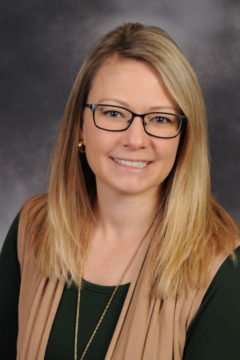
Amanda Dyer
Conference Communications Coordinator
West High School, Madison WI
Why did you decide to get involved with WSCA?
My first experience with WSCA was attending the annual conference when I was a grad student. Ever since then, I’ve been impressed with the passion and dedication of the school counselors involved in bringing such high-quality professional development to the state of Wisconsin. I feel very fortunate to be involved in this work.
What are you reading currently?
I’m currently taking the College Admissions Specialist course through ASCA U and one of the required books is “Counseling 21st-Century Students for Optimal College & Career Readiness”. This book has given me practical ideas for utilizing technology in the advising process as well as helpful tips for helping students navigate the post-secondary application process.
What do you hope to accomplish through your role in WSCA?
As the Communications Coordinator, I love being able to see first-hand the hard work that goes into planning the annual conference. I hope to be able to provide clear information on conference happenings so that all attendees know what to expect and feel connected to the conference experience.
What do you love about your work?
I made the change from middle school to high school counseling this year, so my year has been very busy and full of new learning every day. I love working with high school students, especially hearing about their hopes and goals for the future. It’s so rewarding to be a part of that process with students and families.
Why did you decide to become an educator?
I began my career in education as a teacher, where I taught Spanish and English Language Learners. My work with ELL students led me to pursue a degree in school counseling once I realized how much I enjoyed helping families navigate the education system and guiding them with post-secondary plans.
What do you enjoy doing when you’re not at school?
I love spending time with my family. I have a nine-year-old daughter and a six-year-old son and their activities keep my husband and me very busy. Some of my hobbies include running, cooking healthy recipes, and spending time up north at our family cottage. My personal goal for this summer is to improve my stand-up paddleboarding skills.
Professional Recognition Committee
Every year, WSCA recognizes four school counselors in the state as Wisconsin School Counselors of the Year. Nominations for deserving school counselors are submitted by teachers, students, administrators, and other staff; they are then read by a committee who determine the four winners. This is a prestigious award given out to school counselors as they represent our state and our profession.
This year, we are excited and honored to award the following school counselors as Wisconsin School Counselors of the Year:
Christine Voice – High School Counselor
Kohler High School – Kohler, WI
Brenda Weitermann – Elementary School Counselor
Huntely Elementary School – Appleton, WI
Debbie Bindl – Elementary School Counselor
Pineview Elementary School – Reedsburg, WI
Susan Leadholm – High School Counselor
Black River Falls High School – Black River Falls, WI
Attention: Graduate Students!
By Holly Kortemeier
Are you a graduate student? Do you feel passionate about the profession of school counseling? Do you want to be as prepared as possible to help your future students? If your answer to any of these questions is “yes”, keep reading!
Why be involved in WSCA?
- Meaningful professional development opportunities, including Summer Academy, Fall Summit, the Annual Conference, and more
- Networking with current professionals and future colleagues
- Advocacy at the local, state, and national levels
How to get involved with WSCA?
- Become a WSCA member
- Complete the membership form here
- Follow the “WSCA (Wisconsin School Counselor Association)” Facebook page
- Follow the “WSCA Graduate Students” Facebook page
- Get involved in your school counseling program
- Talk to your Graduate Student Representative(s) for more information. A list of our current Representatives can be found here
- Volunteer at the Annual WSCA Conference
- Graduate students who volunteer for four hours at the Annual Conference get their Conference registration fee reimbursed! We will be looking for volunteers for the 2019 Annual Conference.
- Become a Graduate Student Committee Representative for your school counseling program
- Not sure what a Graduate Student Representative does? Find a description of a Representative’s role and responsibilities here
- Be the next Graduate Student Committee Co-Coordinator
- Not sure what a Graduate Student Committee Co-Coordinator does? Find a description of a Co-Coordinator’s role and responsibilities here
Email Holly Kortemeier or Bri Sukenik at gradstudent@wscaweb.org with any questions you may have. Whether you want to simply follow us on Facebook or become the next Graduate Student Committee Co-Coordinator, we hope you decide to get involved in the great professional organization of WSCA!
Publication Committee Update
Are you interested in helping with WSCAlink?
Here are two ways to get involved:
- Submit an article! Anyone can write for our Tips for Best Practice section. Articles should be no more than 500 words and offer practical ideas that can be implemented right away. Past topics include a small-group that worked well, a great classroom management strategy, an enjoyable mindfulness technique, and more.
- Join the Editing Team! Do you have a penchant for pronouns? Do you leap for language? Do you delight in descriptions? If so, we would love for you to join the Publications Committee! Responsibilities include editing 2-3 WSCAlink issues per year. Contact us if you jump for jargon!
Send questions/articles to publications@wscaweb.org and then we will let you know when it will be used. Don’t be afraid, be published!
All submissions are due by the 10th of each month to publications@wscaweb.org
Upcoming topics include:
April: Advocacy in the Profession
- Reflection on Afternoon on the Hill
- Ways to Get Involved
May: Reviewing Your Program’s Effectiveness
- Using data in your audits
- SPO/PPG write-up tips



